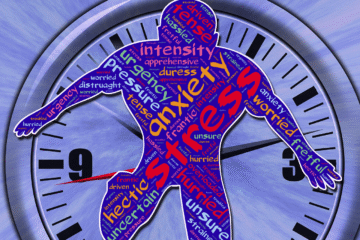
Have you ever woken up, rushed through breakfast, checked emails before even brushing your teeth, and then wondered why you already feel stressed before 9 AM? Many of us do. The way we start our day can shape how we feel for hours afterward. Starting with a rush often leads to higher feelings of worry and less ability to concentrate or bounce back from challenges. But by choosing to move more slowly and thoughtfully in the morning, we can create a sense of calm that carries through the day.
Let’s break this down simply. When we wake up, our bodies naturally have higher levels of a hormone called cortisol, which helps us feel alert but can also make us feel stressed if it stays too high. Rushing around right away can keep this hormone elevated, making us feel on edge. On the other hand, taking time to ease into the day helps bring it back to a balanced level. For example, a study looking at how people handle their mornings found that those with structured, calm starts had up to 25% lower cortisol levels, leading to better focus and emotional balance throughout the day. Another piece of research showed that simple habits like avoiding screens first thing can prevent spikes in this stress hormone, reducing anxiety right from the start.
Slowing down doesn’t mean being lazy or wasting time. It’s about making room to breathe, think clearly, and act with purpose. Imagine starting your day not in a frenzy but with small, easy steps that set a positive tone. This isn’t just a nice idea—it’s backed by what experts have found. Psychologists have studied how our morning habits affect our overall well-being. One review of sleep and hormone patterns explained that cortisol peaks in the morning to wake us up, but chaotic routines can prolong this peak, leading to ongoing stress. By contrast, intentional slow starts help regulate this natural cycle, making us feel more in control.
Now, let’s talk about simple rituals that can make a big difference. Stretching for a few minutes when you wake up is one easy way. It gets your blood flowing gently and helps release tension from sleep. Research on physical activity and hormones shows that light movement like stretching can lower cortisol and improve how we handle stress. Enjoying a quiet cup of tea or coffee without distractions is another. This pause allows your mind to settle, reducing the mental clutter that builds up overnight. Studies on mindful drinking or eating in the morning indicate that such habits can lead to clearer thinking and less emotional ups and downs.
Journaling for just five minutes is powerful too. Writing down your thoughts or what you’re grateful for helps clear your mind and sets a positive mindset. A study on meditation and similar practices found that short daily sessions like this can significantly lower cortisol from before to after the activity, especially when done consistently. These aren’t complicated—they’re basic ways to start with presence instead of pressure.
Why does this matter? Because a slower morning doesn’t just feel better; it builds resilience. Resilience means handling life’s bumps without falling apart. Research on morning routines and mental health shows that people who start calmly report lower stress overall and better ability to focus at work or home. For instance, one study on stress relief found that even brief mindful moments in the morning, like deep breathing, can lower cortisol and create a buffer against daily pressures.
It’s not about perfection. No one has a flawless morning every day. The key is aiming for consistency where you can. Start small—maybe skip the phone for the first 10 minutes and take a deep breath instead. Over time, this builds into a habit that makes your days calmer and more productive. Experts agree that routines like these help regulate our body’s natural stress responses, leading to improved emotional clarity.
In summary, slowing down your morning routine is like giving yourself a gentle launch into the day. It reduces stress hormones, boosts focus, and strengthens your ability to handle whatever comes next. Backed by studies on hormones, habits, and health, this approach turns a hectic start into a foundation for calm. Try it tomorrow and notice the difference. Your mind and body will thank you.


